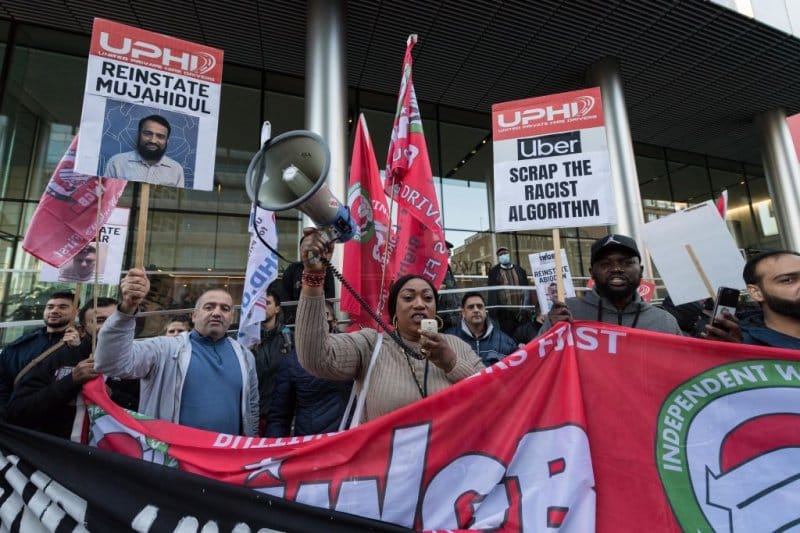Tech Won’t Save Us, And Gig Workers Know It

By Viandito Pasaribu, BA Politics and International Relations
Ah, the gig economy. The great innovation of the 2010s. It’s got such a pleasant name, too. The word ‘gig’ conjures up images of the humble street performer making some money on the side by contributing to the atmosphere and liveliness of the public places we pass by every day.
We think of the gig as an avenue by which someone can eke out a dignified living on their own terms, while managing their own time. Something that even the ivory tower salaryman might wish for as they reflect on their long commute home. The promises of quintessential gig economy firms like Uber, Bolt, and Deliveroo certainly appeal to that desire with their claims of ‘innovation’ in providing service support. (Relying on the publicly funded hardware breakthroughs used in smartphones!)
In fact, the mobilisation of labour in the gig economy in this year of 2021 has further demonstrated that the veneer of free enterprise lauded by these firms hides an exploitative system where full-time workers do not receive the same benefits and compensation as those in other service jobs, thanks to their classification as ‘independent contractors.’
The dearth of rights granted under this status can trap workers in cycles of poverty in a much more acute manner than those in other industries. Gig workers’ income is incredibly precarious, sometimes below minimum wage, owing to the fact that they are not paid at a fixed rate. It then exacerbates health and safety issues, a critical fault in countries like the US where the ‘contractors’ are not eligible for the insurance plans their employers sponsor.
And to think that all of this barely even contributes to the company’s bottom line! Uber has generated losses of over $29 billion since it came into existence.
The massive gain that organised labour has made against gig economy bigwigs recently offers a glint of rare optimism in our sullenly sceptred isle, though. The landmark Uber BV vs Aslam case settled in February has ensured that all 70’000 Uber drivers in the UK are now classified as workers, entitled to holiday pay and a guaranteed wage. Typically, Uber is slow to implement the changes decreed by the ruling, but importantly, the precedent set may see more much-needed reforms to working conditions throughout the industry. It also triggered strike action in June by drivers working for the taxi hire service Bolt, who are still subject to the contractor system.
The basic mechanisms by which workers are exploited in the gig economy so closely resemble those of other sectors that we ought to interpret the idea of free association by independent contractors (as it is seen in an area of the service industry that has become an integral part of our digitized lives of the 21st century) as simple repackaging of the labour relations that had existed at the advent of industrial capitalism some 150 years ago.
“Technology on its own can not solve the problems that were born out of the structures that we created to govern social relations between human beings.”
Technology on its own cannot solve the problems that were born out of the structures that we created to govern social relations between human beings. Nor should it be seen as a neutral arbiter that is completely removed from social relations either. The most prescient example of this is the September scandal where Uber drivers went on strike to protest against facial recognition technology used by the company which systematically failed to recognise faces of a darker skin tone, leading to numerous unwarranted dismissals.
If we want to make the changes that we need to in order to fulfil the lofty goal of achieving social justice for all, it is important to keep a critical eye on how technology can be used as a tool for the powerful to strengthen their already well-entrenched positions in our society. By learning from the experiences of gig workers, we can begin to understand why tech alone won’t save us.
Photo Caption: Uber drivers protest the use of facial recognition technology claimed to be racially biased (Credit: Wiktor Szymanowicz / Barcroft Media).



